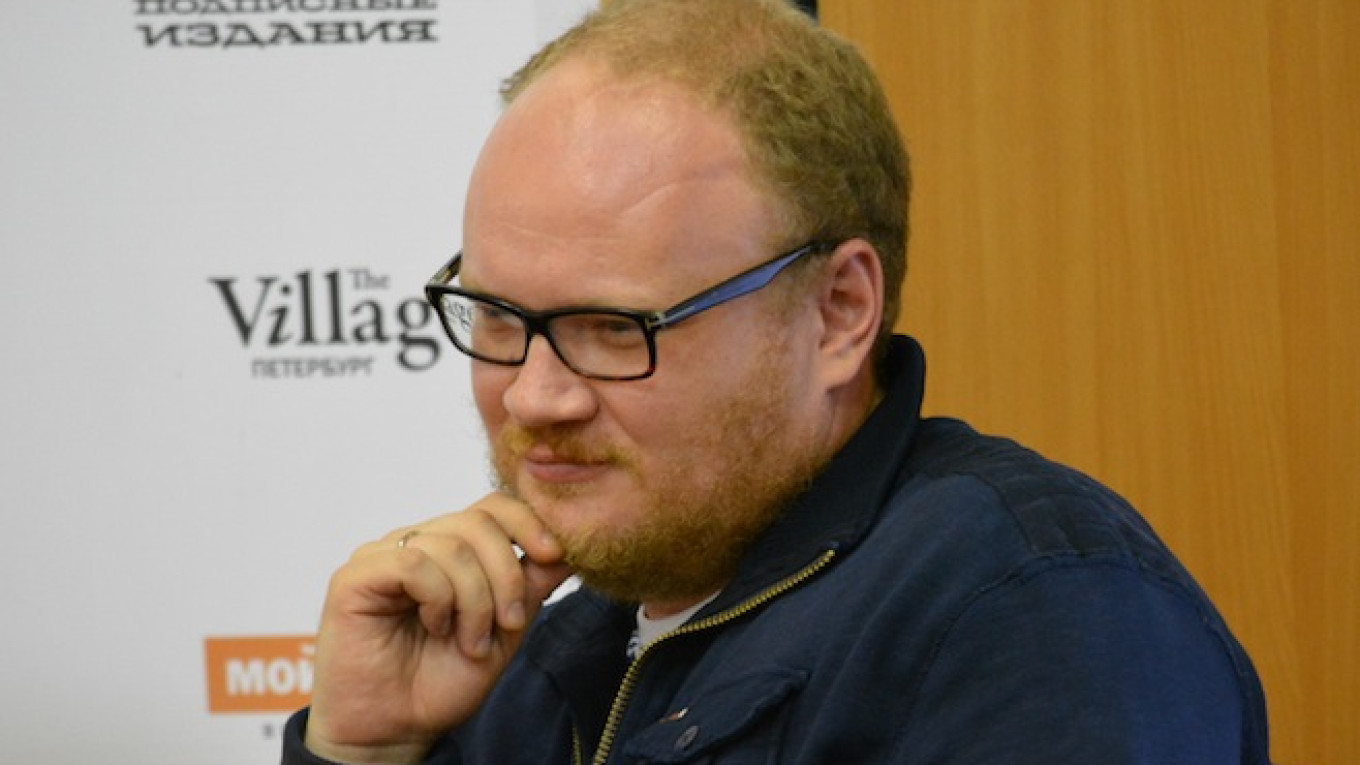Prominent Russian journalist Oleg Kashin has revealed the names of four men allegedly behind a near-fatal attack on him five years ago.
If the case is declared solved by investigators — five years after then-President Dmitry Medvedev took the investigation under his personal control — it will be a rare instance of a high-profile probe into politically motivated violence being closed.
In a post published Monday on his personal website, Kashin identified two security guards at a St. Petersburg factory, Danila Veselov and Vyacheslav Borisov, as the men who brutally beat him with an iron pipe near his Moscow apartment in November 2010.
Kashin, then a journalist at the Kommersant newspaper, lost part of a finger as a result of the attack, which many believed was linked to his work and which caused shockwaves throughout the country.
A third guard at the same plant, Mikhail Kavtaskin, was named as the driver who brought the men to the scene.
Two of the suspects, Veselov and Kavtaskin, said the attack had been ordered by Alexander Gorbunov, head of the Leninets holding company that included Mekhanichesky Zavod, the plant where the guards were employed, Kashin said.
Leninets was owned by relatives of Pskov Governor Andrei Turchak, Kashin said.
Kashin had criticized Turchak in his blog two months before the beating, accusing him of owing his position as governor to his father Anatoly's close ties to then-Prime Minister Vladimir Putin.
The journalist then dismissed demands by Turchak for an apology.
Kashin did not accuse Turchak in his Monday statement, and a spokeswoman for Turchak declined to comment on the new accusations on Monday morning, news site FlashNord reported.
Veselov and Kavtaskin were charged with attempted murder in June and are in custody, while Borisov has been charged in absentia and is in hiding in Belarus, the journalist wrote.
Gorbunov paid the men 3.3 million rubles (over $100,000 at that time) for the attack and helped them hide from the authorities in his hometown Mogilev in Belarus, Kashin said. Gorbunov was charged with the illegal possession of firearms in a separate investigation and is also in detention, Kashin said.
Investigative Committee spokesman Vladimir Markin told the Govorit Moskva radio that “He [Kashin] probably learned this from his lawyers. As yet I have no information that can either confirm or deny [the claims].”
The attack in 2010 left Kashin hospitalized with a fractured skull and damage to his jaw, legs and fingers and came in the wake of a series of high-profile murders of journalists — including the killing of Kremlin critic Anna Politkovskaya in 2006.
“Our history shows that similar cases, especially where a contract has been taken out, are difficult and time-consuming to investigate, but that does not mean that they have been forgotten,” President Vladimir Putin's spokesman Dmitry Peskov was cited as saying by news agency Interfax on Monday.
Kashin earlier accused the then-head of the Federal Agency for Youth Affairs, Vasily Yakemenko, of being behind the attack. Kashin said Monday that he would apologize to Yakemenko.
Contact the author at e.hartog@imedia.ru
A Message from The Moscow Times:
Dear readers,
We are facing unprecedented challenges. Russia's Prosecutor General's Office has designated The Moscow Times as an "undesirable" organization, criminalizing our work and putting our staff at risk of prosecution. This follows our earlier unjust labeling as a "foreign agent."
These actions are direct attempts to silence independent journalism in Russia. The authorities claim our work "discredits the decisions of the Russian leadership." We see things differently: we strive to provide accurate, unbiased reporting on Russia.
We, the journalists of The Moscow Times, refuse to be silenced. But to continue our work, we need your help.
Your support, no matter how small, makes a world of difference. If you can, please support us monthly starting from just $2. It's quick to set up, and every contribution makes a significant impact.
By supporting The Moscow Times, you're defending open, independent journalism in the face of repression. Thank you for standing with us.
Remind me later.


